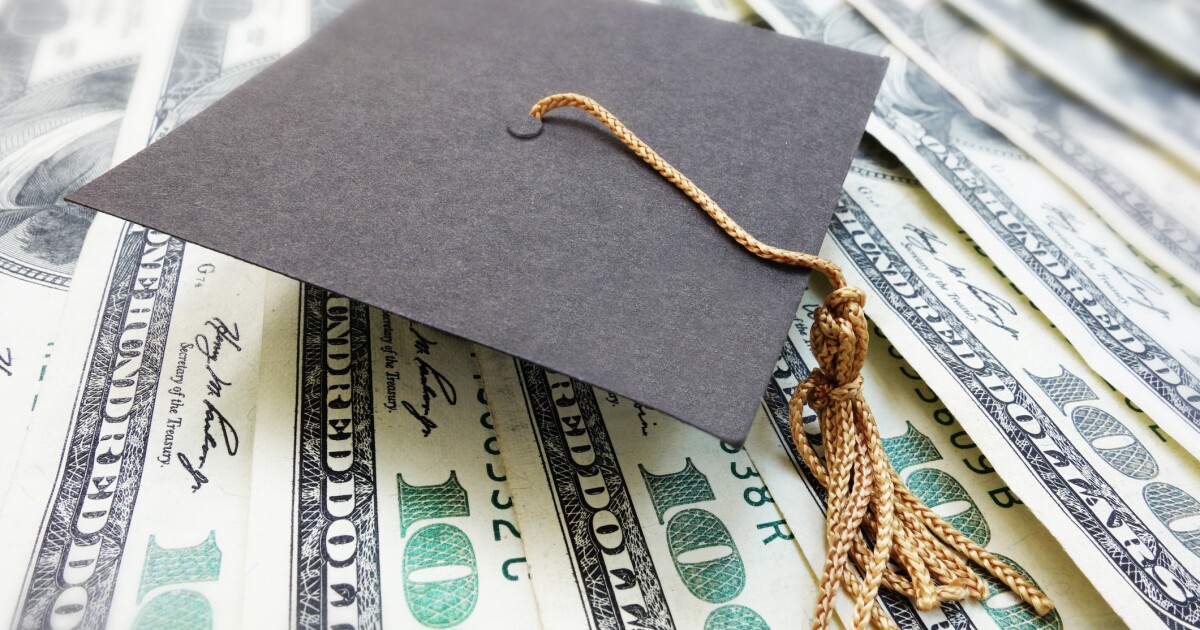

Interest on student loan payments started accruing again on Friday and the first payments are set to come due next month. Here are some of the ways the change might affect consumers and the economy.
It has been three years since the government placed a pause on federal student loan payments at the outset of the coronavirus pandemic. After the date for payments to resume was repeatedly pushed back, despite employment returning to pre-pandemic levels months ago, borrowers will have to face more interest and more payments soon.
BIDEN STRUGGLES TO HEAD OFF MOUNTING UNION TENSIONS AS HE PURSUES GREEN AGENDA
Experts are split on how big the macroeconomic effects of the payment resumption will be, although there will be notable implications for individual borrowers, particularly those who are already struggling to make ends meet and grappling with inflation and higher interest rates.
Pao-Lin Tien, an economics professor at George Washington University, said that the macro effects of the student loan payments resuming are likely to be more muted.
“Overall sort of consumer demand might be down a little bit,” she told the Washington Examiner on Friday.
Researchers at Goldman Sachs projected Friday that payment resumption in full would be equal to roughly $70 billion, or around 0.3% of disposable personal income, and would shave about 0.8% from personal consumption expenditure growth in the fourth quarter of this year.
They also found that, perhaps surprisingly, student loan payments have surged above pre-pandemic levels in recent weeks. The reason for that might be that many borrowers have voluntarily restarted monthly payments earlier than required or that some borrowers might have made large one-time payments toward loan principal before the payments resume next month.
“We think the main explanation behind the surge in payments is that a small share of borrowers is paying down principal on their loans,” the researchers said. “A widespread resumption of monthly payments is much less plausible, as the recent level of payments is higher than would be likely even if all borrowers began making monthly payments early.”
Bankrate’s Sarah Foster told the Washington Examiner that the general consensus among economists is that the return of student loan payments is going to have a modest effect on the economy and consumer spending. But she said she is particularly worried about how it will affect some of those already facing financial hardships.
“What I think is going to probably happen is the most vulnerable Americans are probably going to be feeling an even bigger pinch, and that’s kind of piling on top of other concerns right now, including still-elevated inflation and higher interest rates,” Foster said, noting that lower-income households are already feeling the rising prices and higher rates more acutely than others.
There is also a chance that overall borrowing activity, not just for student loans, might increase as a result of the payments resuming. That is because consumers might need to borrow more or rack up some credit card debt to keep up with their level of spending, something that is harmful because interest rates are much higher now than they were a year ago.
Loan delinquency rates are still low, although they are on the rise, especially for those between the ages of 18 and 29, according to Foster. She noted that about one-third of all student loan debt is within that age group.
“So you could definitely see borrowing rates and delinquency rates kind of pick up for those people,” Foster said.
Tien said that while it is possible there will be signs of higher borrowing activity, such as higher levels of credit card debt, it is also possible that many people would simply scale back their discretionary spending in order to avoid that extra hit.
“Perhaps we won’t see debt levels go up, but instead we’re going to see a cool off of discretionary spending,” she said.
The change might have implications for the housing market, although those could be subtle, according to Tien. She said that housing demand might ease slightly because more potential homebuyers will be forced to pay more out of pocket each month with the loans resuming, putting a mortgage further out of reach.
Tien also pointed out that another factor that will dampen the blow to the broader economy is the guardrails that the Biden administration has put in place for the next year as the repayments restart.
CLICK HERE TO READ MORE FROM THE WASHINGTON EXAMINER
The administration announced an “on-ramp” for the next year. Those who are late or miss their payments for the next 12 months won’t be reported to credit agencies or be considered to have defaulted. The move will “help borrowers avoid the harshest consequences of missed, partial or late payments,” according to the Education Department.
“I think they are trying their best to ease everybody back into this new reality, so I don’t think we’re going to see a huge immediate impact even if there is a sort of negative impact on consumption,” Tien said.





